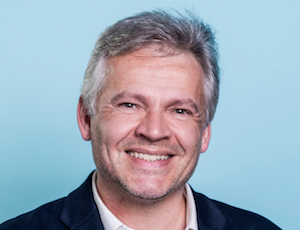 In 1995 I found myself on Carleton University campus, having been hired as a Project Manager with a start-up company led by Carleton engineering students, working out of the new Carleton Training and Technology Centre. With a background in education, I was brought on in support of a federal government project called SchoolNet, which helped schools and educational institutions with internet connectivity and content in the early days of the world wide web.
In 1995 I found myself on Carleton University campus, having been hired as a Project Manager with a start-up company led by Carleton engineering students, working out of the new Carleton Training and Technology Centre. With a background in education, I was brought on in support of a federal government project called SchoolNet, which helped schools and educational institutions with internet connectivity and content in the early days of the world wide web.
I had not put too much thought into graduate school, but simply being on campus, I found myself caught up in the spirit, and during my lunch breaks I had taken to casually investigating Master’s programs. Paterson Hall was at the other end of campus, but one day I got there, and discovered what was then known as the Applied Language Studies program. I was intrigued about the opportunity to explore the role of language in our organizations and systems – how the words we choose to use to describe our work, the questions we ask and the documents we complete, how we organize and report on the information we collect – these are not neutral or benign activities, but rather powerful influencers that can change lives, communities, and societies.
On this particular fall day in 1995, I was very fortunate to have encountered program supervisor Karen MacKinnon, who went out of her way to ask me if I had any questions, and within minutes I found myself in conversation with Aviva Freedman. I had little understanding of her global status as a leading figure in the field, and she said little about herself – her focus was on my own interests, and I found myself walking back to work with my shoulders back and my head held high with one thought in mind – I think I need to start my application for graduate school!
I was then working full-time and continued to do so after leaving my IT job to commit to charitable organization LiveWorkPlay in 1997, and I think I still might hold the record for working through my MA part-time. In the end it was a 6-year experience, which although challenging in the sense of having a distant finish line, was very helpful because my studies were able to evolve as my interests and roles shifted at LiveWorkPlay. Namely, I moved increasingly into the domain of marketing and communications of our cause, and was tasked with effectively communicating about the exclusion and inclusion of people with intellectual disabilities. My time at Carleton helped me develop a strong foundation for understanding social, political, and economic structures and their power dynamics, and how to deconstruct their messaging to get at barriers and opportunities for marginalized populations.
Although it has now been more than 15 years since my graduation, colleagues, media, researchers, policy developers, and other interested parties continue to tell me “your perspective on these issues and how you talk about them is very different from most people in this field” and I believe this owes directly to my MA experience. As needed, I am able to focus on the framing of issues and force clarity between the connection (or lack of connection) between what social policy is or should be calling us to do, and what is actually occurring on the ground.
In a broader sense, the way I came to be enrolled in the program also serves as a lesson about inclusion. It was not enough that I was always “free to apply” to the program. It took a bit of intervention from Karen and Aviva to help me see my own value and potential as a contributor to the program and to the field, an approach that was continued by staff and faculty throughout those six years. It calls us to think more deeply about what it takes to include the most marginalized populations in society – the existence of programs is not enough – it is human connection that wields the real power to change lives and to bring communities together.